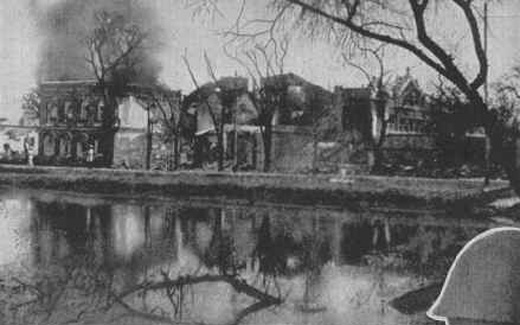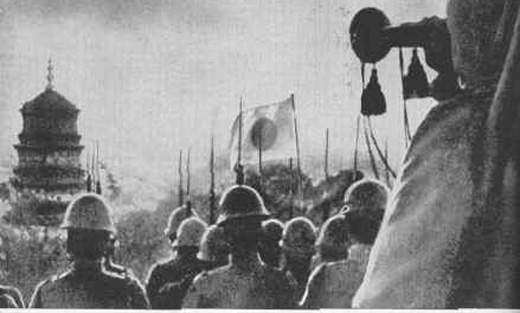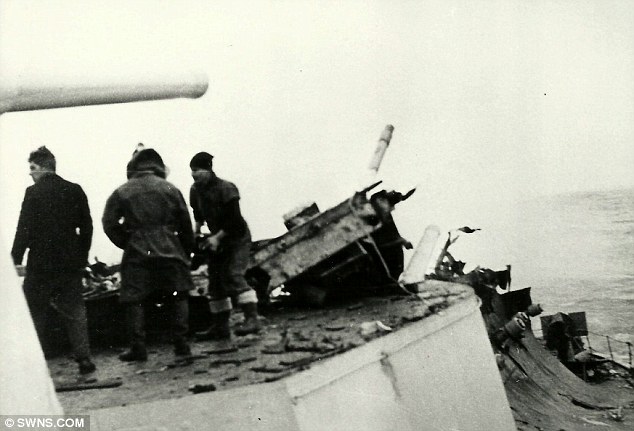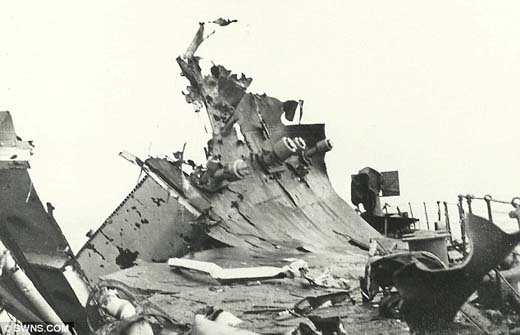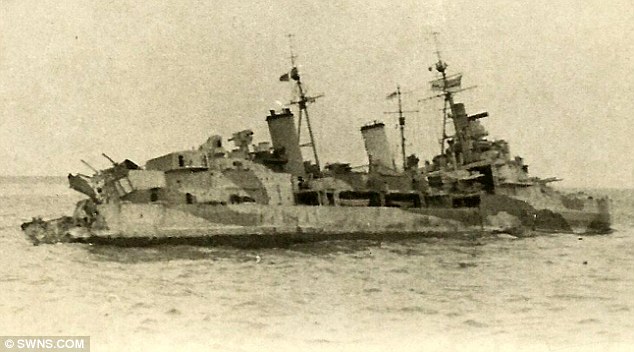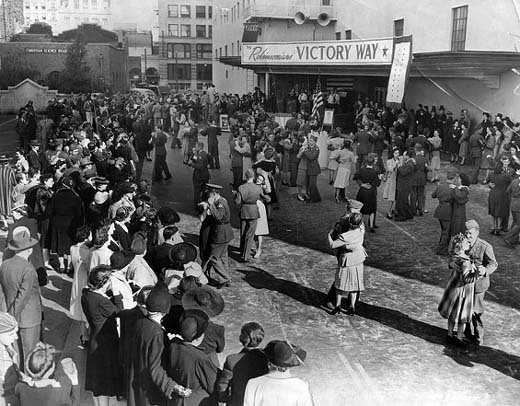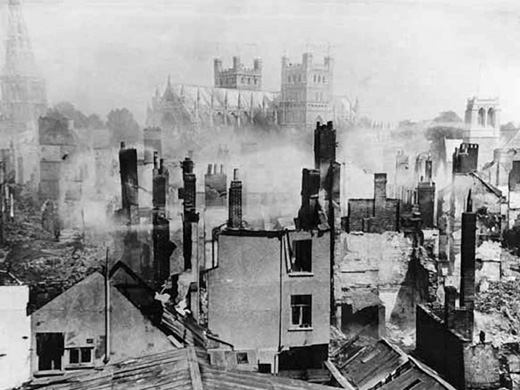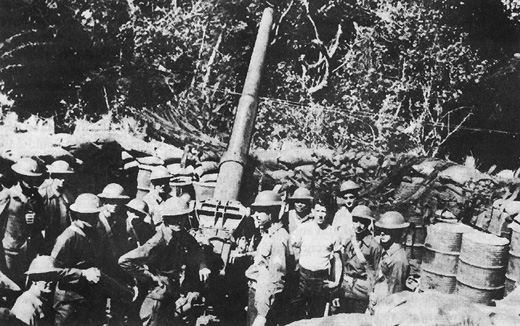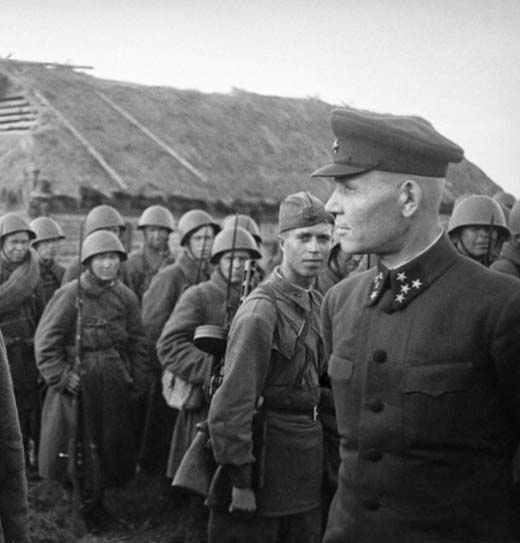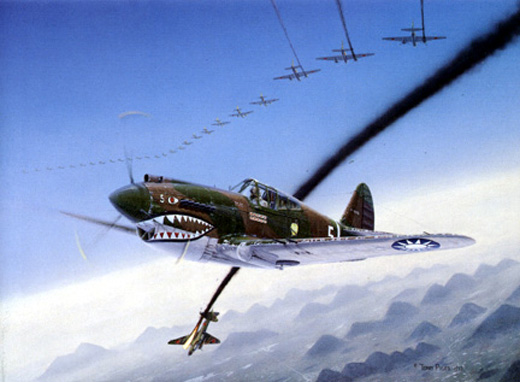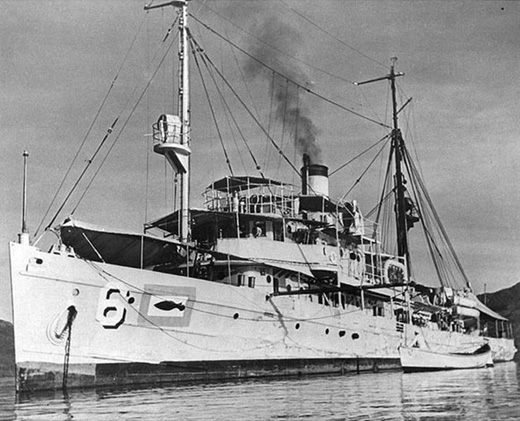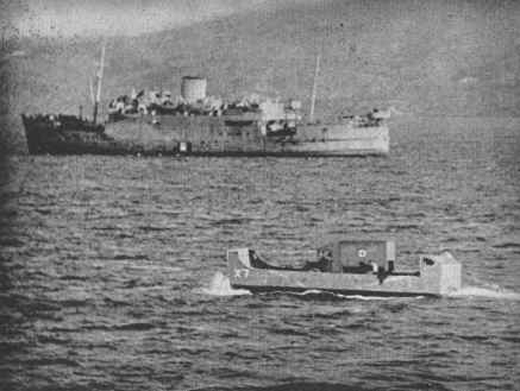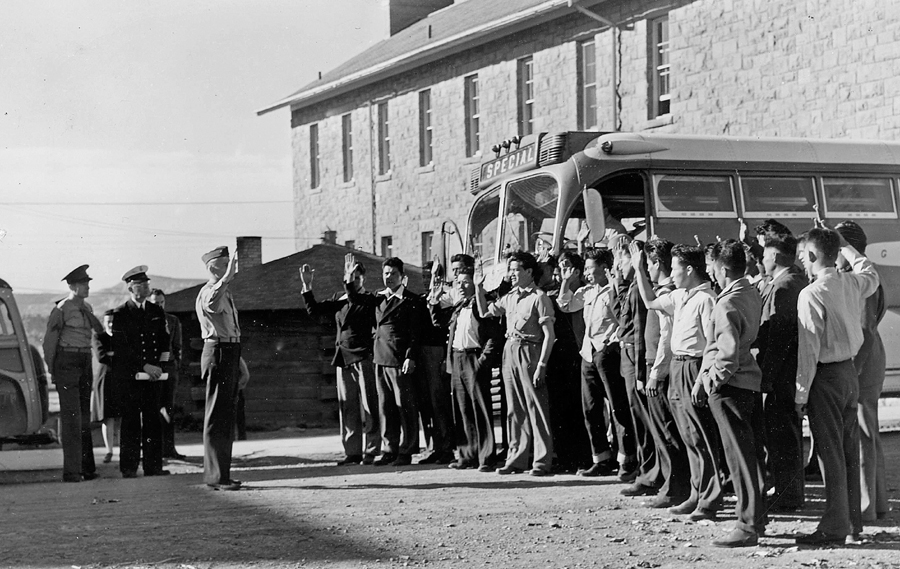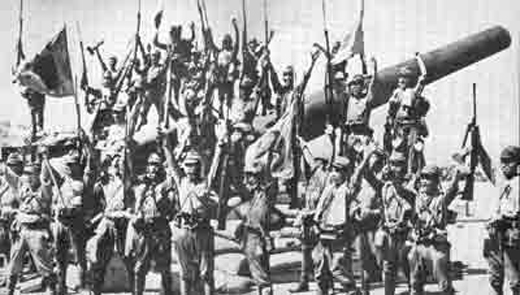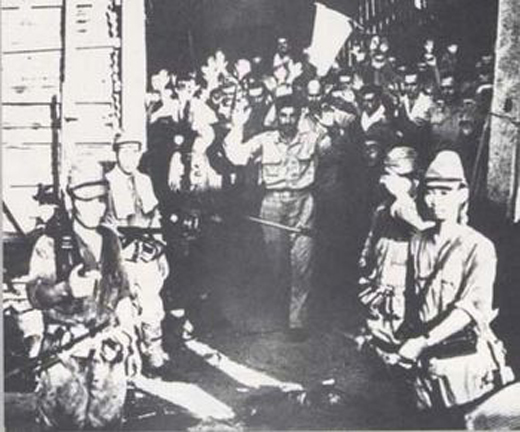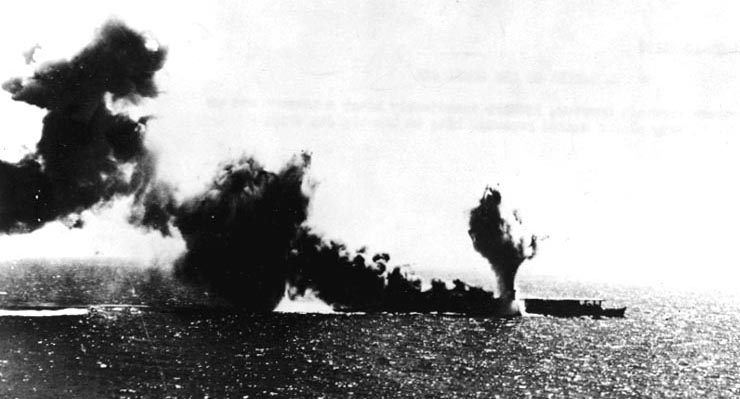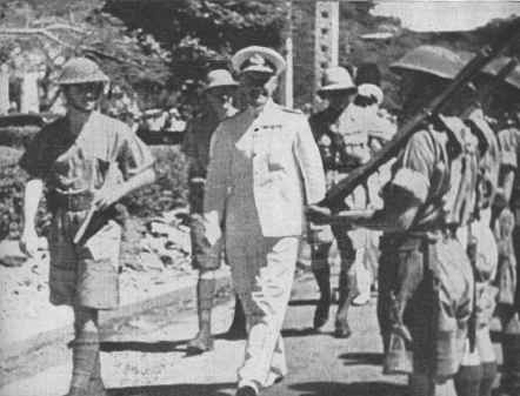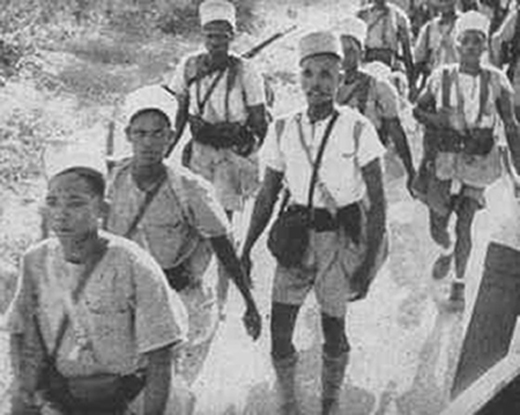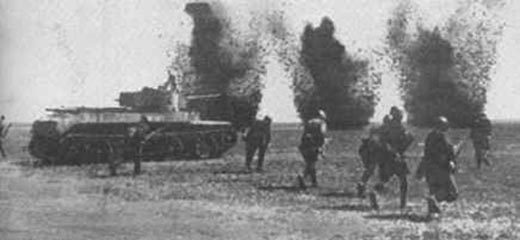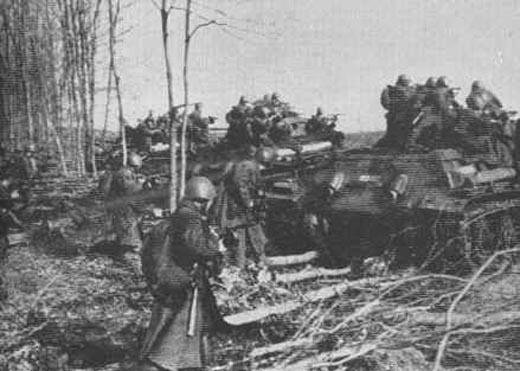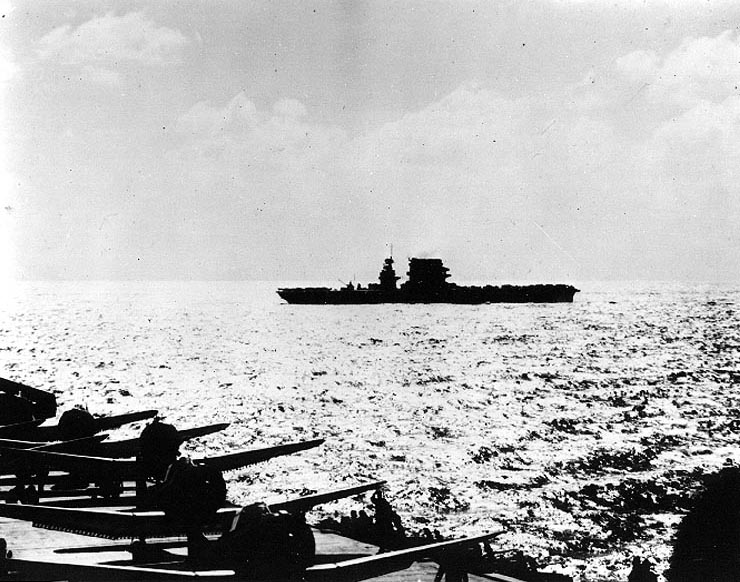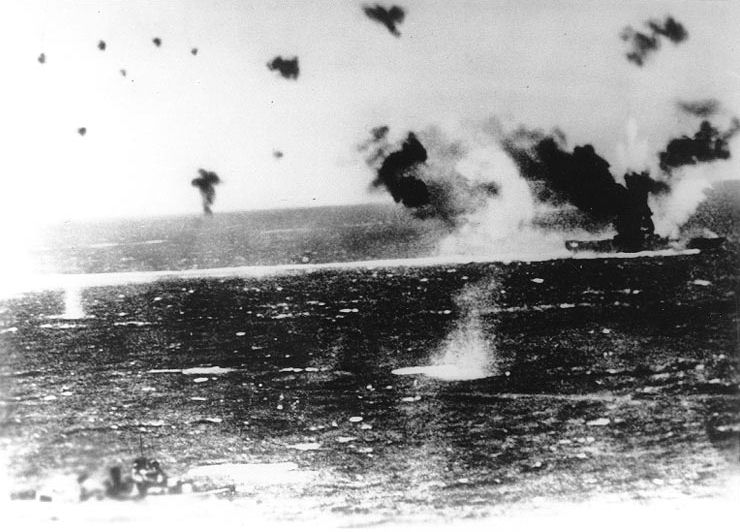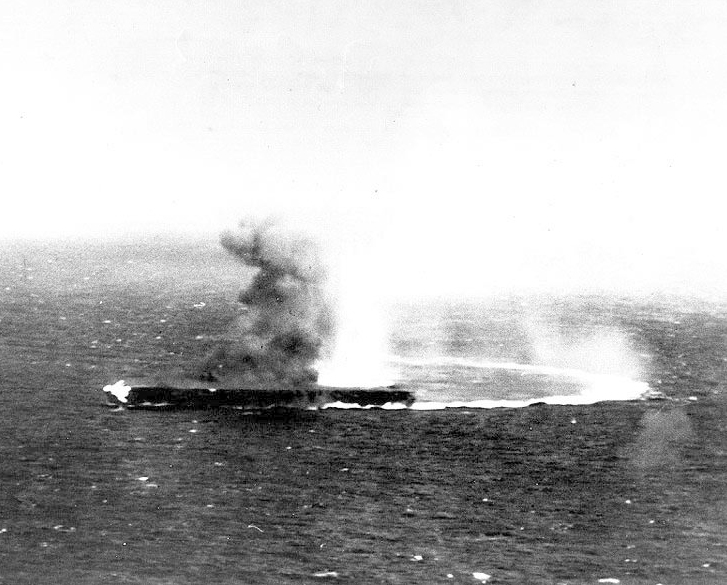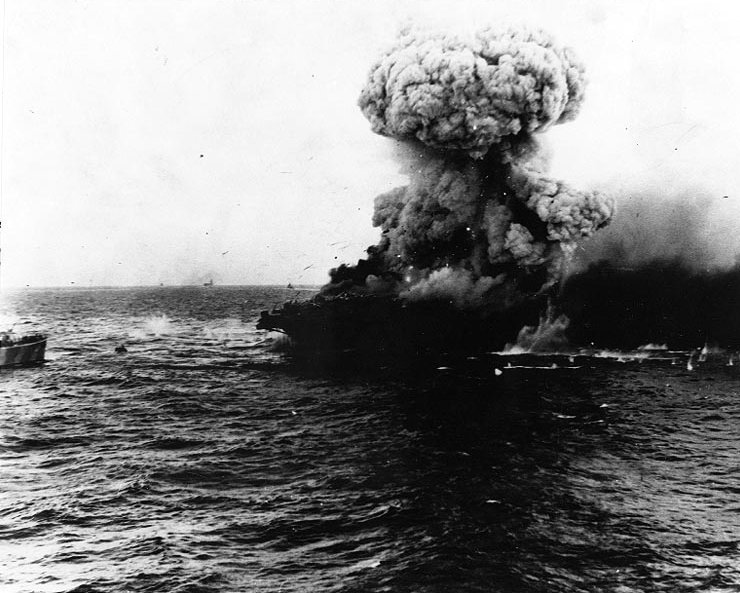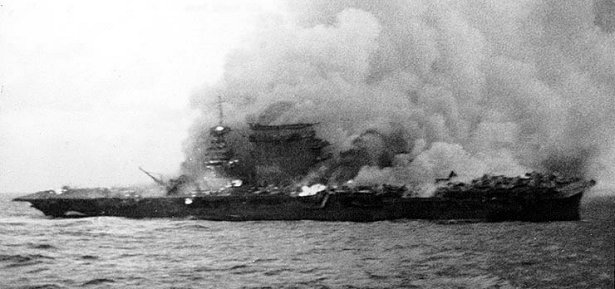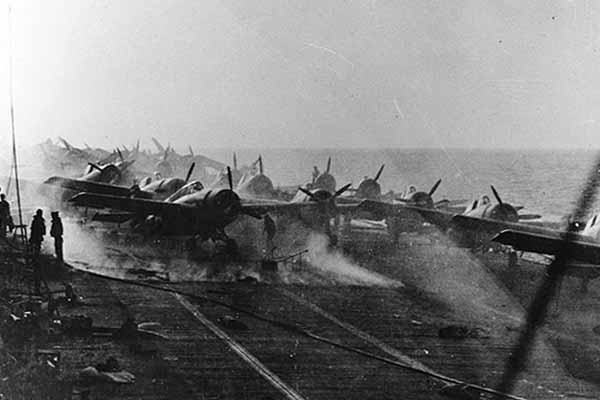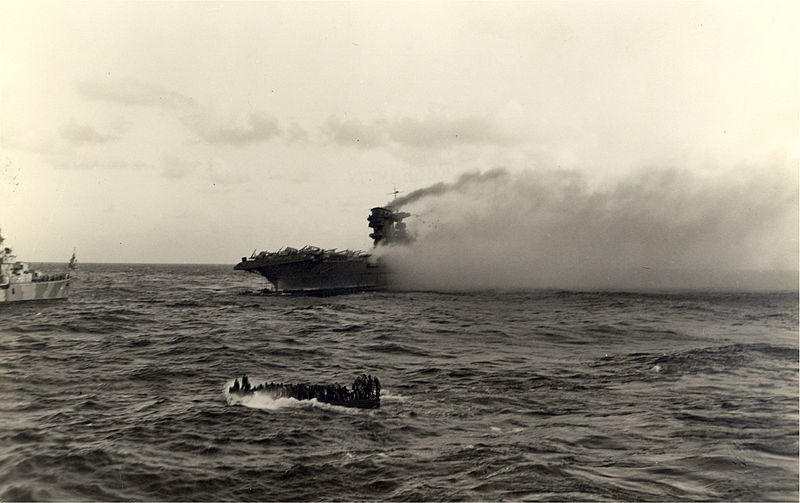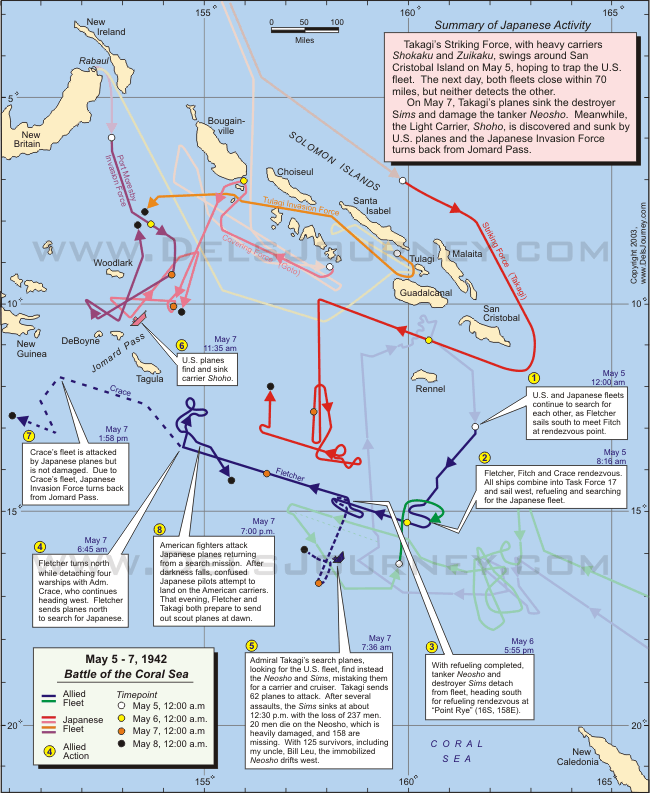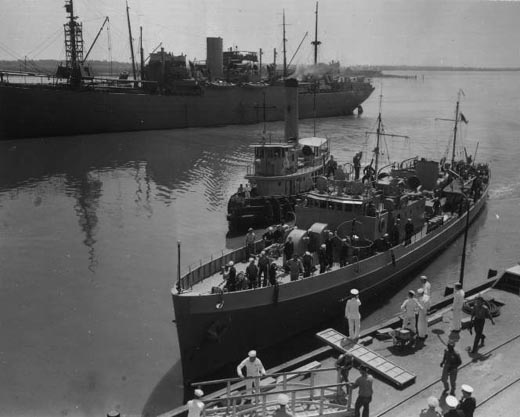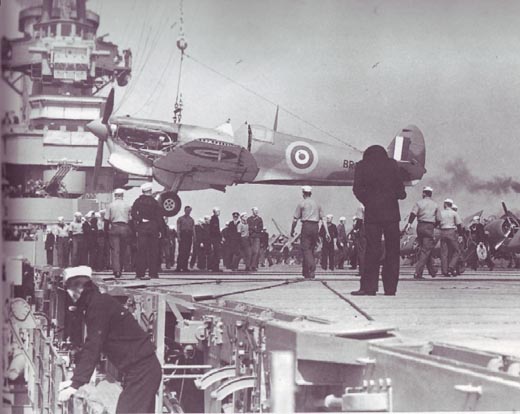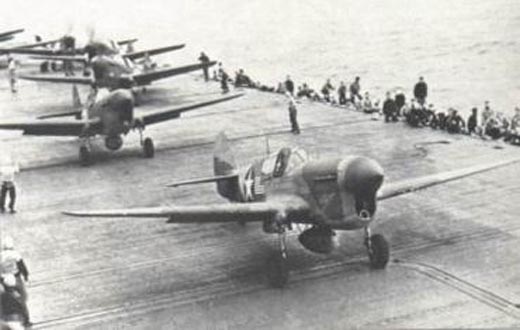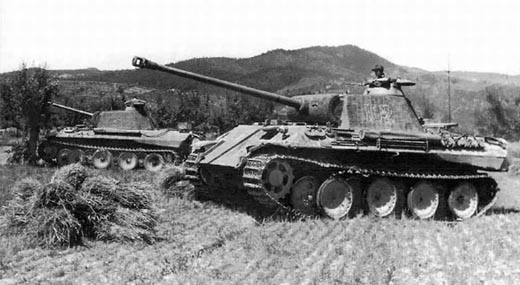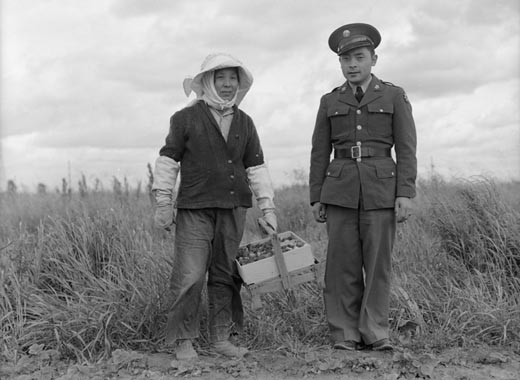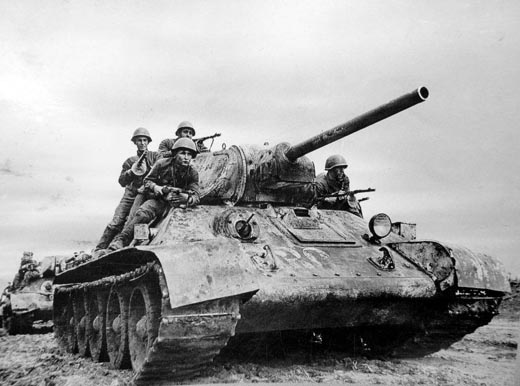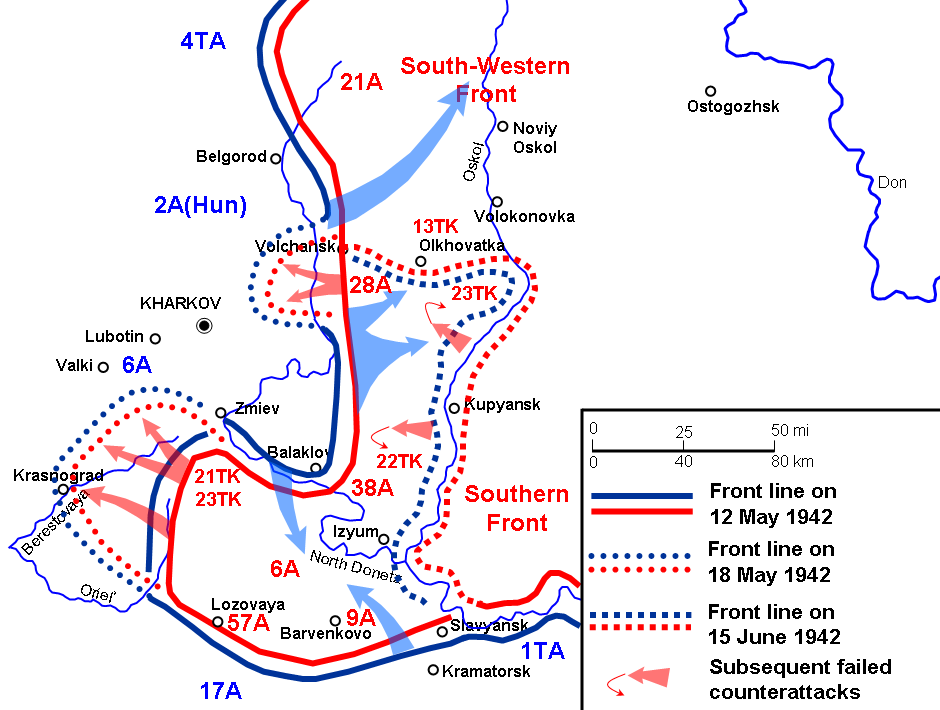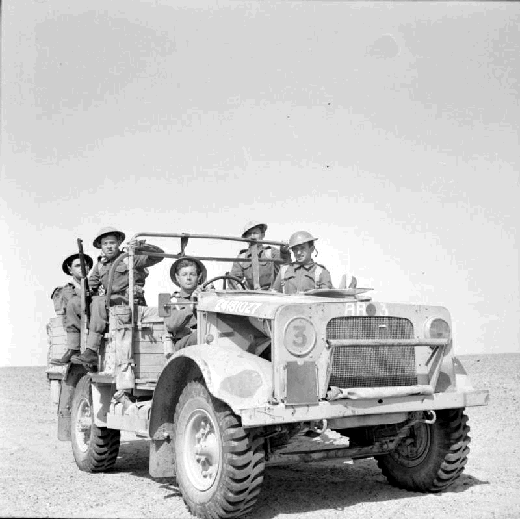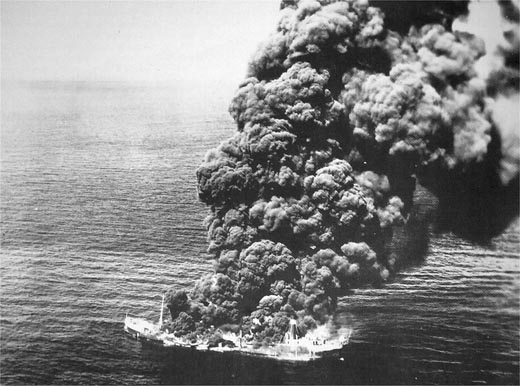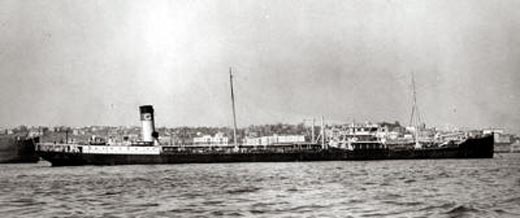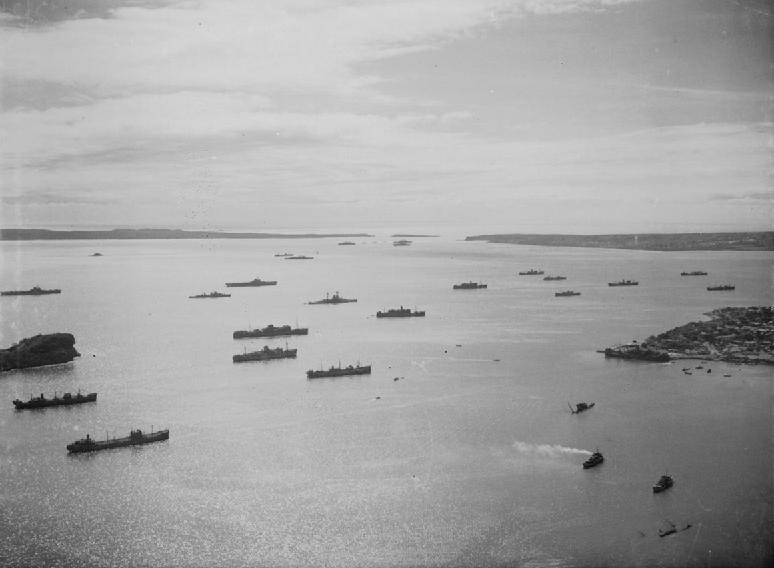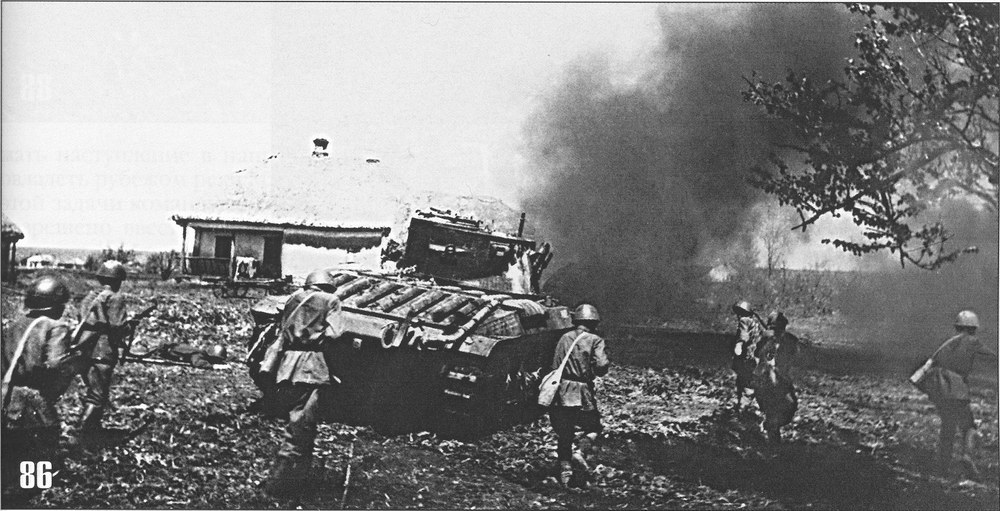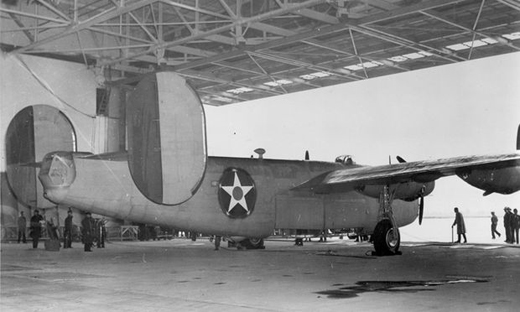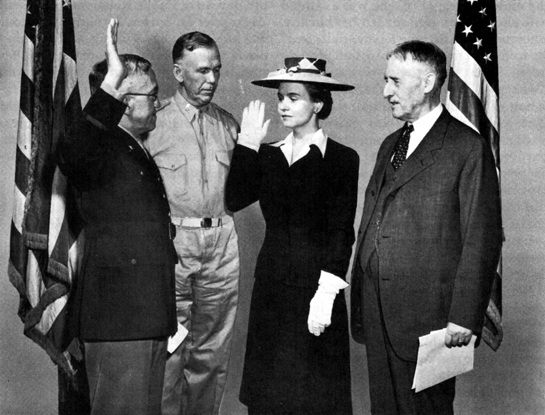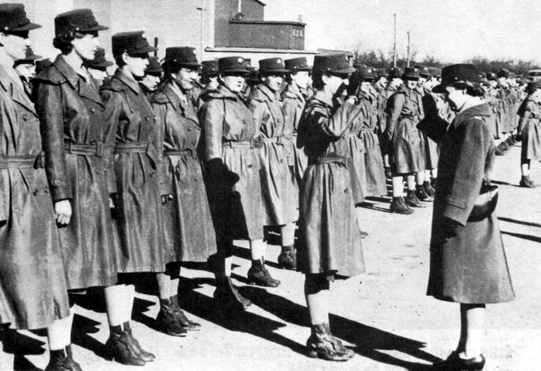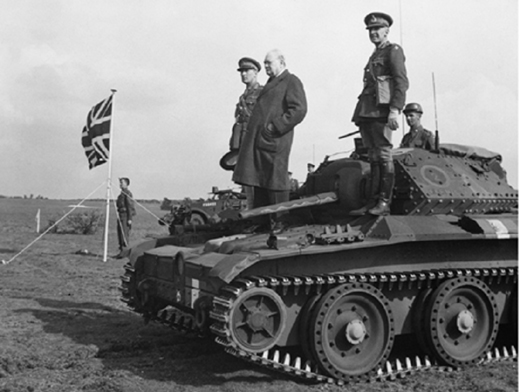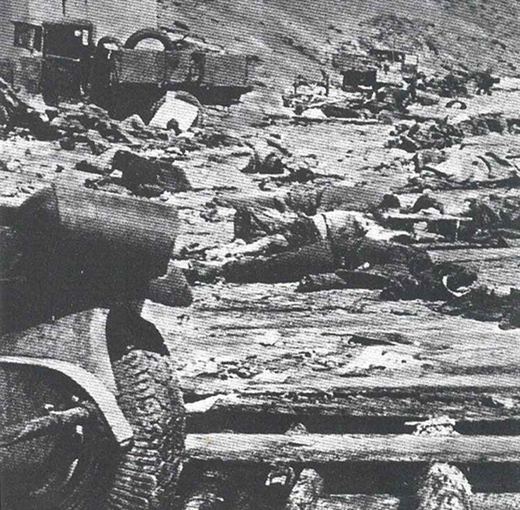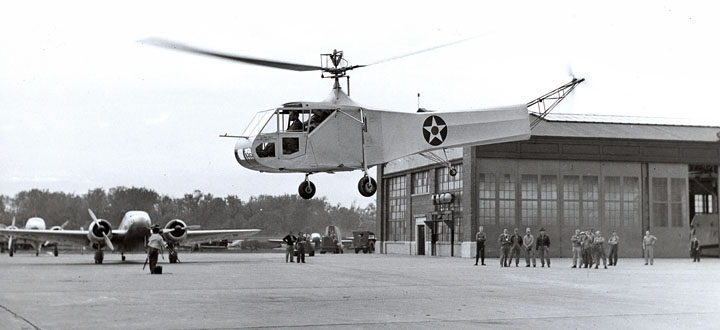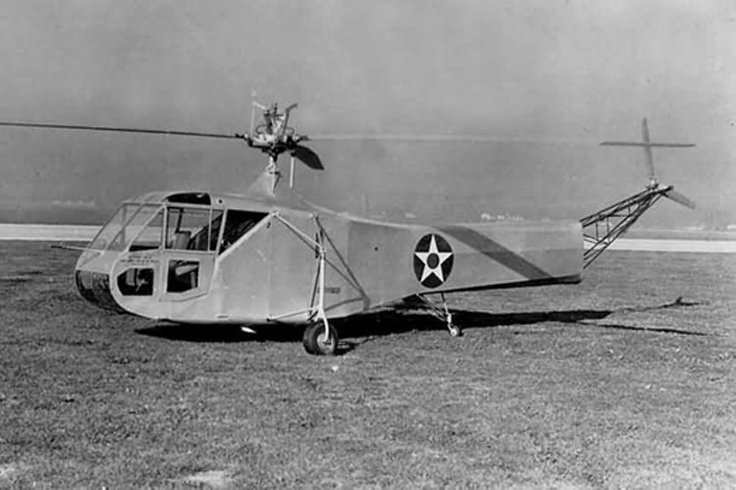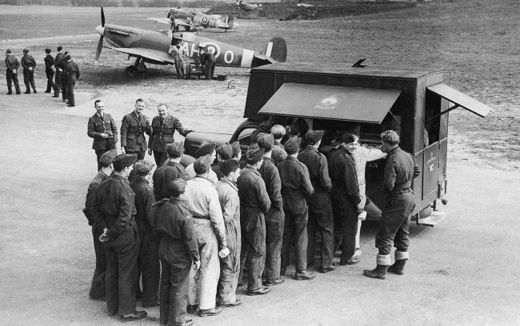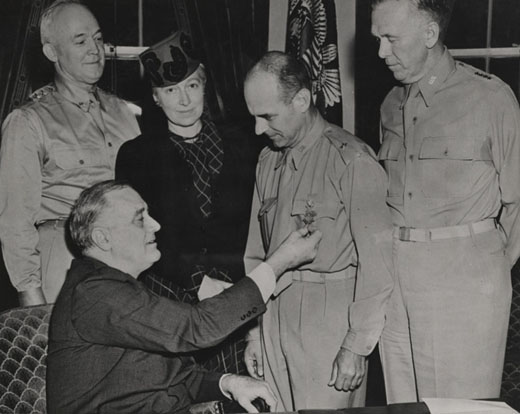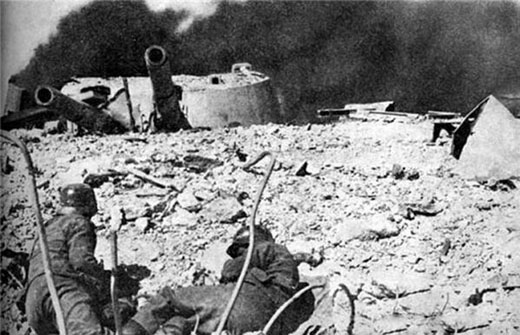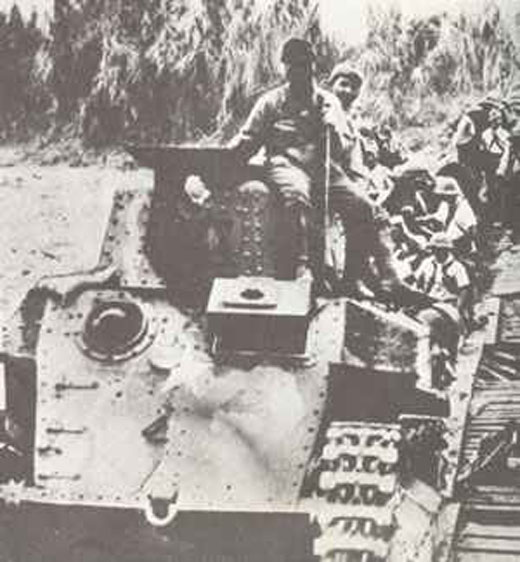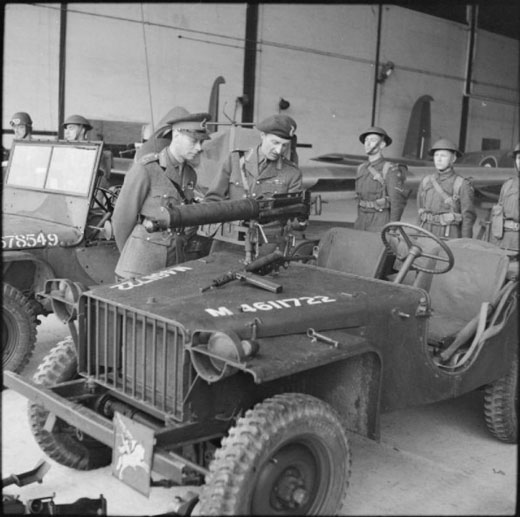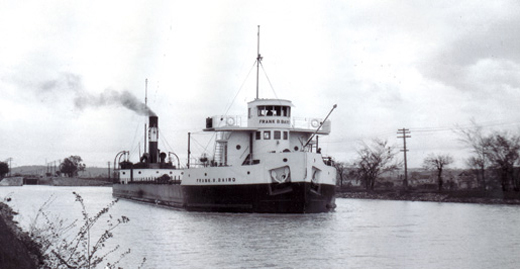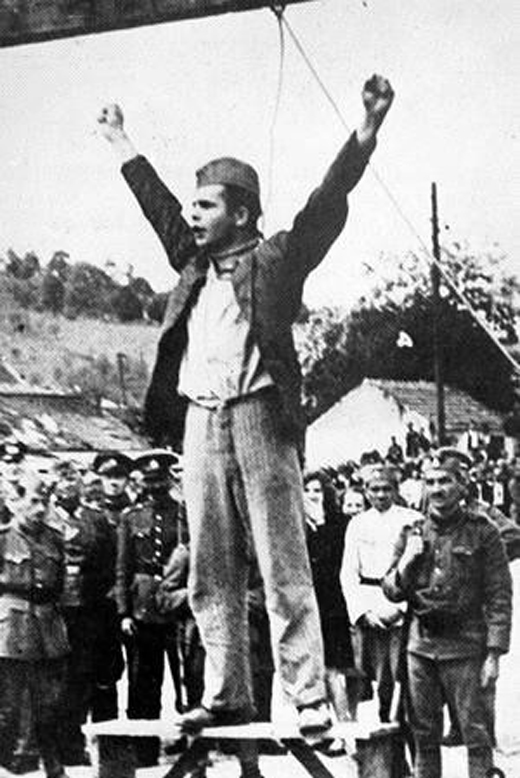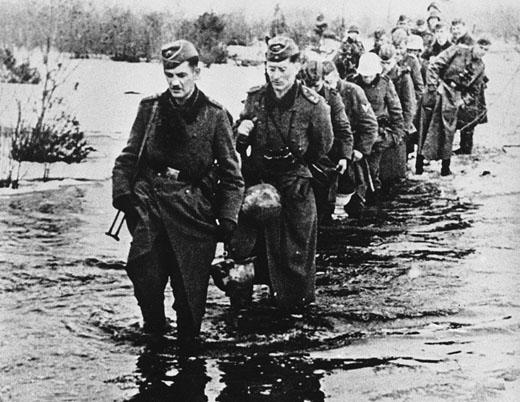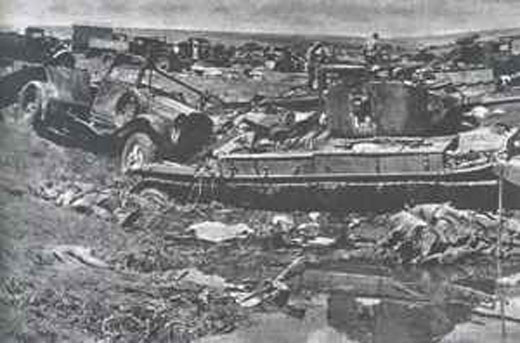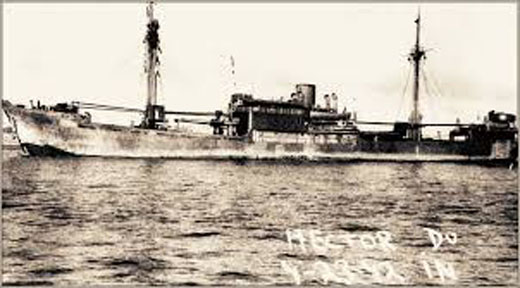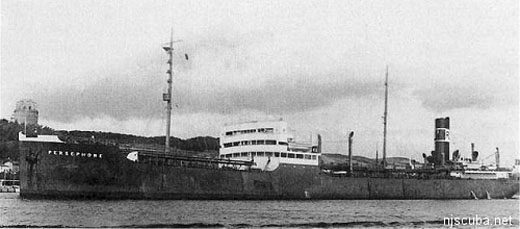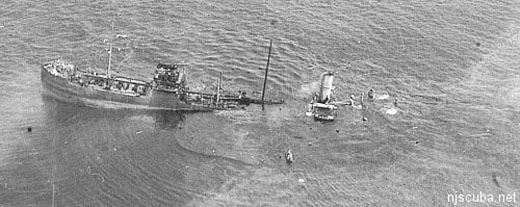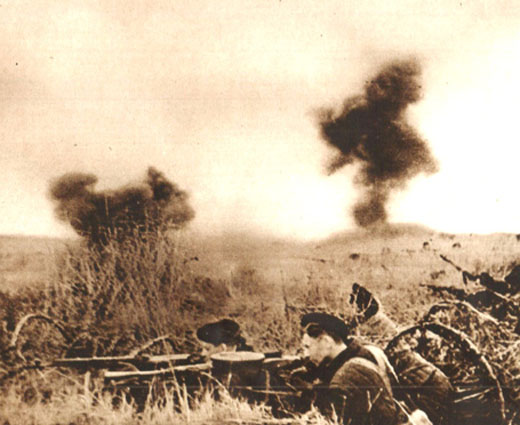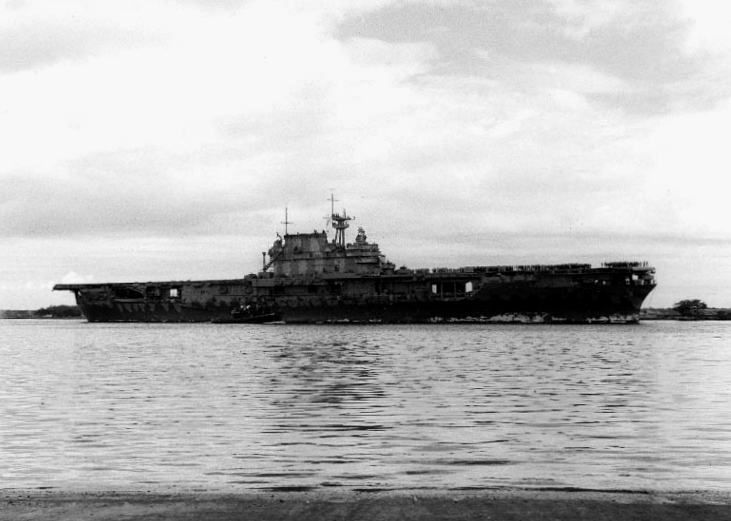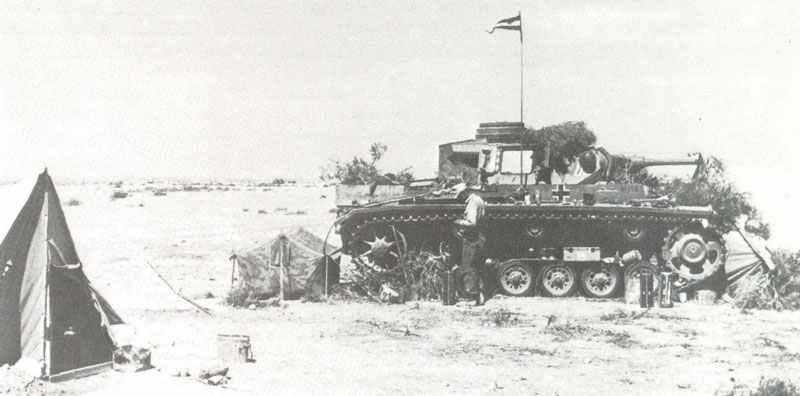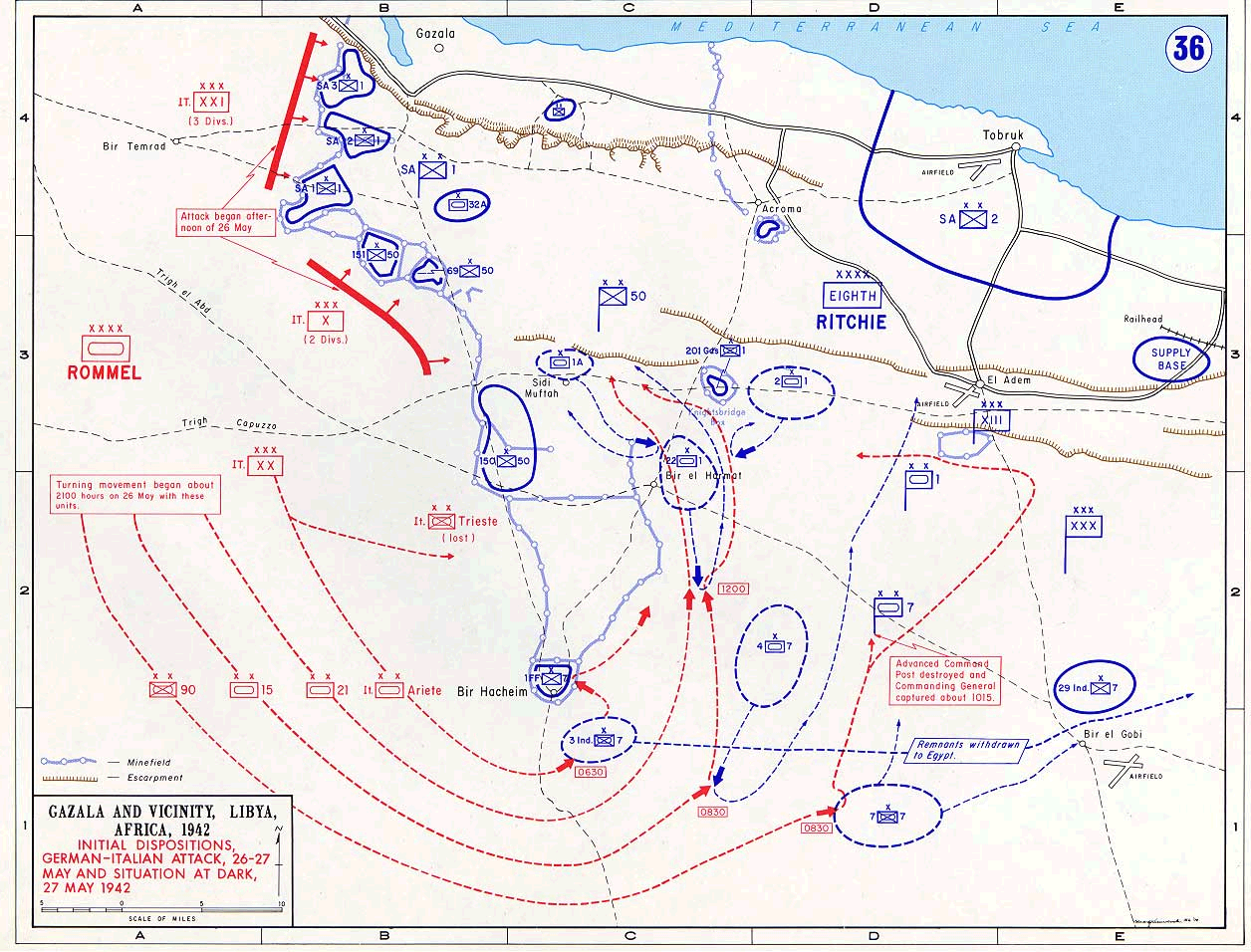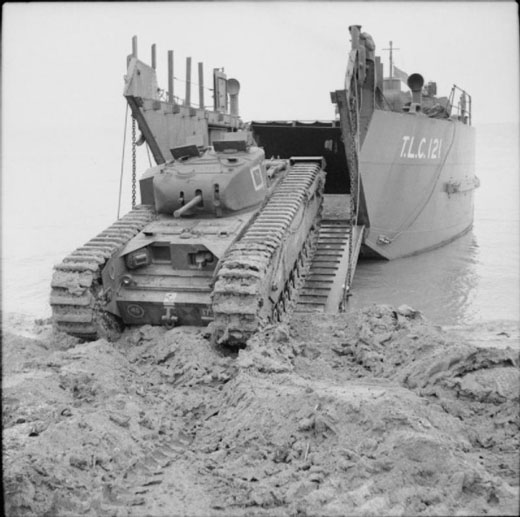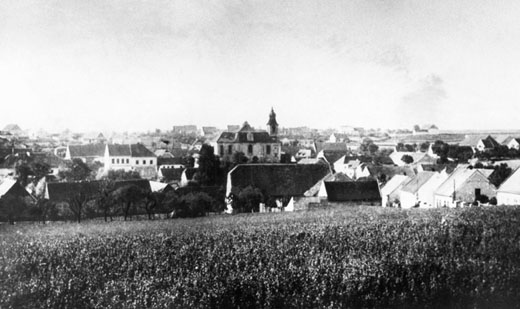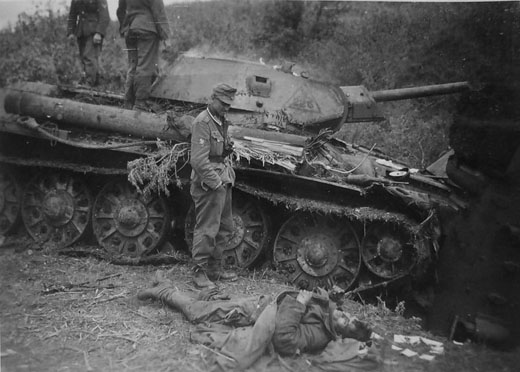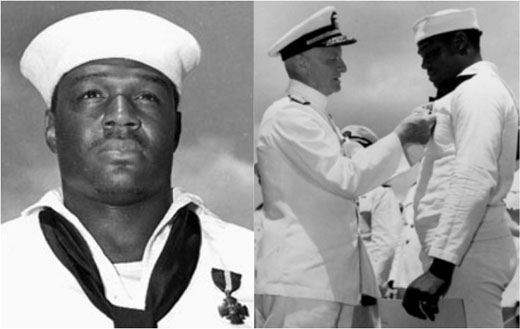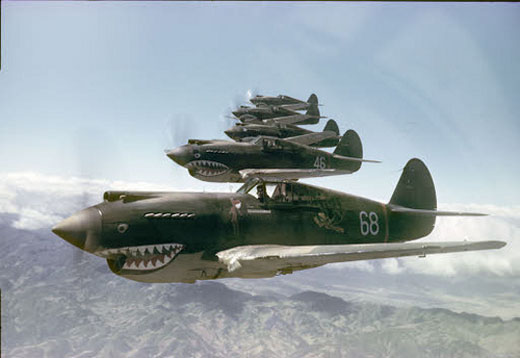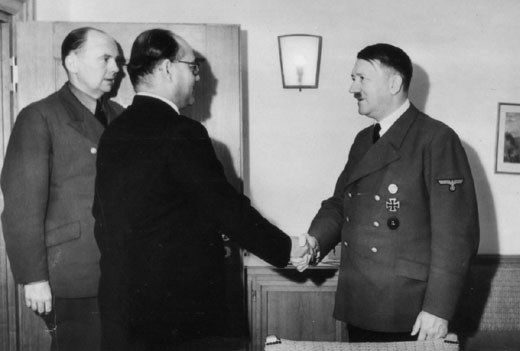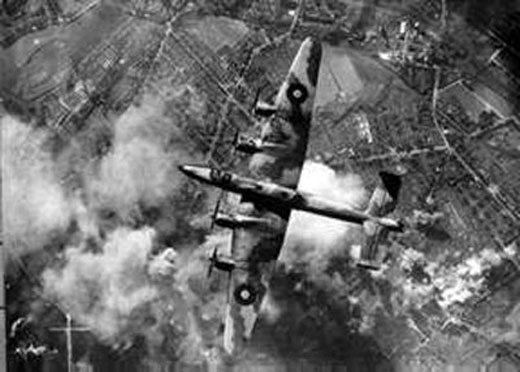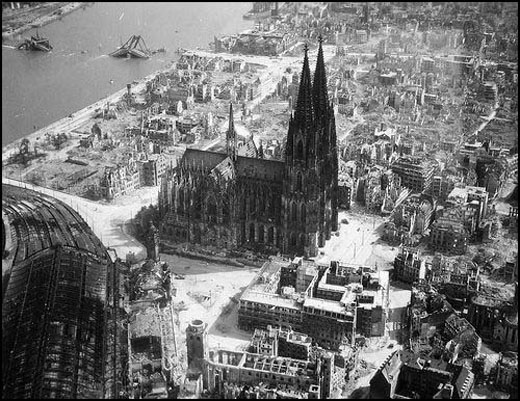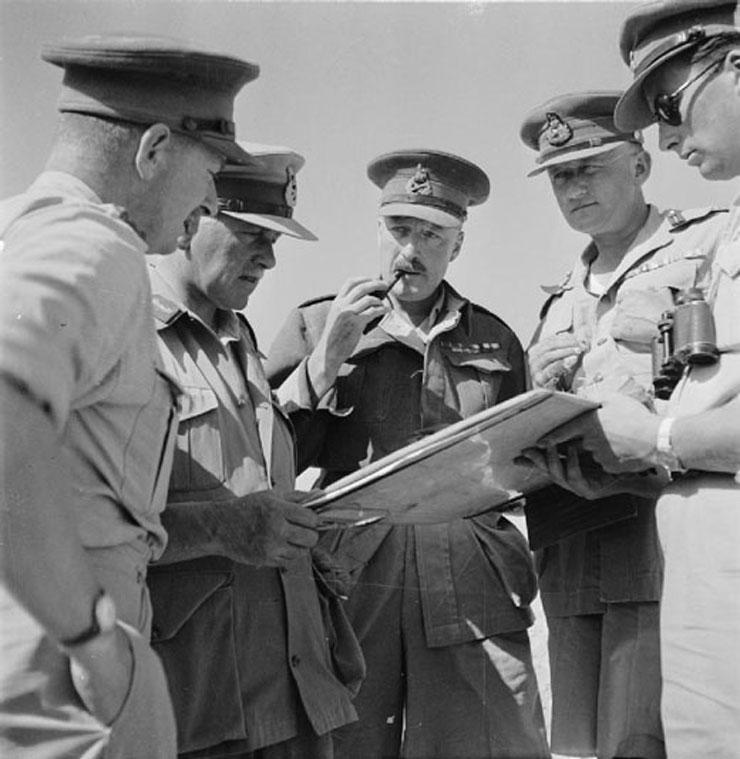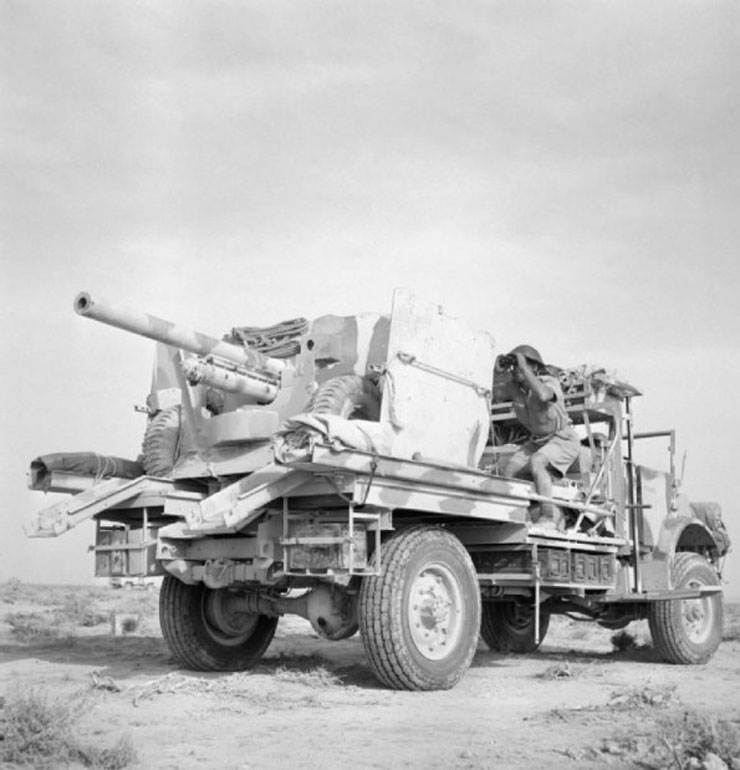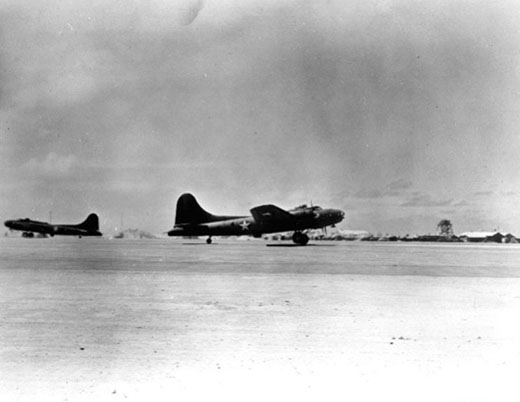Air Operations - Europe
BOMBER COMMAND12 Bostons attack a parachute factory in Calais and the railway stations at St Omer with no losses.
[Air Operations, New Guinea
8th Pursuit Group P-39s shoot down 4 A6M Zeros in a couple of seperate actions near the Port Moresby/Seven Mile Airfield between 0750 and 0845 hours.
[Atlantic
The British destroyer Punjabi is sunk after colliding with the battleship King George V. The latter suffers damage from exploding depth charges.
[Burma
Mandalay falls to the Japanese 18th and 56th Divisions and Monywa to the 33rd Division as British forces find their left flank totally exposed. The Allies are now retreating, with the Chinese 6th Army heading for the Chinese province of Yunnan. Units of the 5th and 66th Armies withdraw to Yunnan or northern Burma.
|
|
Eastern Front
In the siege of Sebastopol May Day celebrations and demonstrations are held despite German air raids and artillery fire. During the period from May through November of 1942 448,694 civilians will be evacuated from Leningrad by boat across Lake Ladoga.
The XXXIX Panzer Corps begins a counterattack aimed at relieving the long encircled garrison at Kholm.
City Militia Women Spotters |
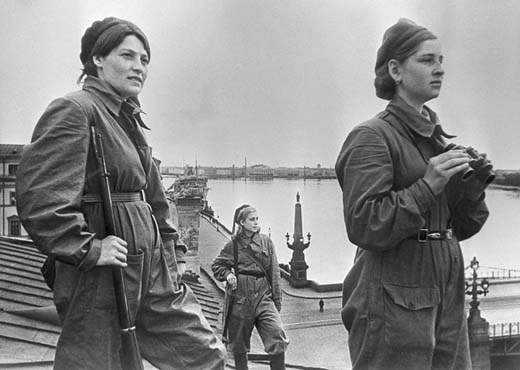 |
The Demyansk Operation has cost the Soviet forces 88,908 killed and 156,603 wounded.
Clearing Debris in Velletta, Malta |
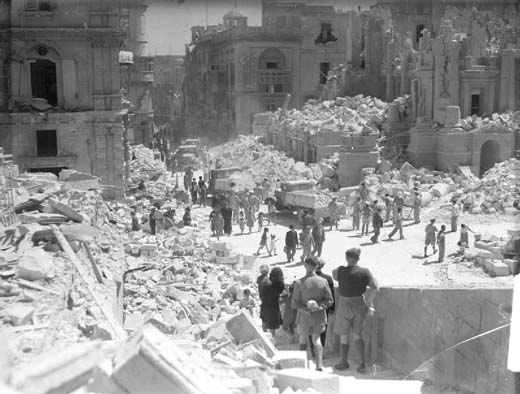 |
Mediterranean
During the next two days 2 U-boats are sunk while attempting to disrupt the 'Tobruk Ferry'.
On May 1 U-572 is attacked by Hudson 'M' of No 233 Squadron RAF with three depth charges. She is damaged but makes it to the Spanish port of Cartagena on May 2, where she is interned.
| Class | Type VIIC |
| CO | Kapitänleutnant Heinrich Heinsohn |
| Location | Mediterranean, E of Cartagena |
| Cause | Air attack |
| Casualties | 1 |
| Survivors | 43 |
On May 2 U-74 is sighted on the surface by Catalina 'C' of No 202 Squadron and attacked with depth charges. The Catalina remains on station until the arrival of destroyer Wishart and Wrestler arrive. They destroy the submarine with a number of depth charge attacks.
| Class | Type VIIB |
| CO | Leutnant zur See Karl Friedrich |
| Location | Mediterranean, S of Cartagena |
| Cause | Air attack/depth charge |
| Casualties | 46 |
| Survivors | None |
Oiler Neosho Re-Fueling the Yorktown |
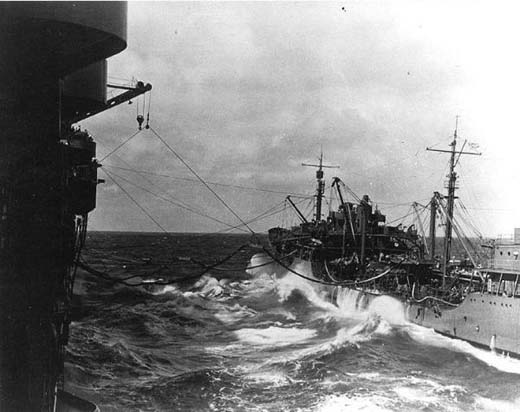 |
Pacific
- The US submarine Grenadier (SS-210) mistakenly torpedoes and sinks the Soviet merchant ship Angarstroi about 90 miles west-southwest of Nagasaki, Japan.
- The US submarine Triton (SS-201) torpedoes and sinks the Japanese army cargo ship Calcutta Maru (5339t) about 180 miles north-northwest of Formosa.
Philippines
MINDANAOA Japanese force driving north along Route 1 gains control of that highway as far north as Lake Lanao and virually eliminates the 61st Infantry (PA). Other forces continue east unopposed toward the Sayre Highway at Kabacan. Fighting in eastern Mindanao continues indecisive.
CORREGIDORJapanses planes and artillery begin the final phase of preinvasion bombardment of Corregidor.
[Soviet Union, Home Front
Stalin's Order of the Day calls for total effort in order to achieve victory in 1942. Workers at the Stalin Metal Plant at Kuznetsk and the Kirov Tank Works pledge themselves to achieve unprecedented production targets. This example is followed throughout the Soviet Union. It is called the 'Socialist Emulation Campaign'.
[